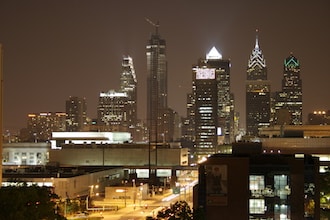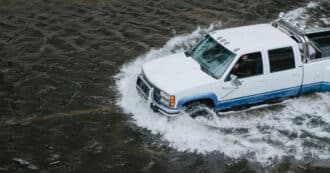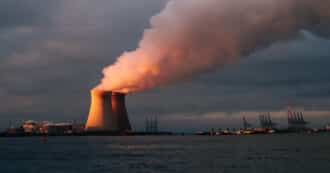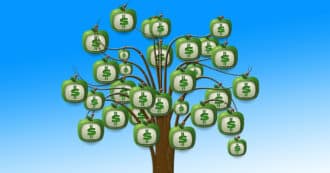By Rabbi Yonatan Neril

As Philadelphia has experienced a rise in temperatures due to climate change, Mayor Jim Kenney has committed the city to 100 percent clean energy by 2030. This is a positive direction, since scientific evidence has made it increasingly clear that human activity is changing the climate and making extreme weather events more common. To enable a sustainable future, we need all hands on deck. That’s why Philadelphia’s faith communities will be key. Many residents of Philadelphia identify as people of faith and maintain some level of religious practice. They attend religious institutions, hear from clergy, and conduct their lives in a manner associated with the values of their faith. A significant potential exists for faith teachings to speak to the environmental challenges we are facing today, with climate change being at the top of the list.
Yet a 2014 survey by the Public Religion Research Institute and the American Academy of Religion found that “most Americans who attend religious services at least once or twice a month hear little from their clergy leaders about the issue of climate change.” The low incidence of American clergy teaching on climate change, and by extension, environmental issues in general, is reflected in how American citizens view the issue of climate change.
While many have sought to address climate change and other global environmental challenges, the current approaches have yet to succeed in catalyzing a collective global response commensurate with the challenge. This stems in part from the failure to engage those people with the greatest track record of inspiring behavior change: faith leaders, clergy, and teachers. Seminaries influence the reach and impact of future faith leaders. Many faiths understand the ecological crisis to be a spiritual crisis, and the education of emerging clergy in this area is therefore critically important.
Such an enterprise can be seen in the United Lutheran Seminary, with campuses in Philadephia and Gettysburg. In addition to an Ecology & Stewardship course offered at its Gettysburg campus since 1994, an immersion course, Environment & Religion in Northern Appalachia, guides students to the home of Rachel Carson, the earliest oil fields, streams restored from mine drainage, virgin forest, carbon-zero buildings and other sites. The United Lutheran Seminary also offers a Green Preaching course. Sustainable infrastructure at the seminary includes geo-thermal heating and cooling in major buildings, water conservation and a productive seminary garden. The Seminary Ridge Museum earned LEED green building certification by renovating its 1832 building on the popular Gettysburg Battlefield. In May 2018, the United Lutheran Seminary then announced a trust to permanently preserve 18 acres of historic land with the Museum.
Also in Philadelphia, the Reconstructionist Rabbinical College offers the course Rabbis as Activist Leaders for Environmental Sustainability and Justice. This rabbinical school has been an early leader of including Jewish ecological learning as part of training rabbis. They also offer resources for creating sustainable synagogues. As well, leaders from Green Muslims and CAIR-Philadelphia (the Council on American-Islamic Relations) have been working to educate the community on climate change. For example, they teamed up with other ecology-activism organizations last year for a program about spiritual ecology at Respect Graduate School.
These Philadelphia seminaries and activism organizations are part of a nation-wide trend of seminaries and theology schools educating emerging clergy on environmental issues. Religious leaders trained in this way will then synthesize the religious value of caring for the planet when preaching, teaching, or providing other clerical services to their congregants. Based on that inspiration, religious individuals will embrace more sustainable lifestyles.
The hurricanes that hit Puerto Rico, Florida, and Texas, as well as the wildfires in the West, are warning sirens. They provide us a glimpse into the degraded future we must prevent. When any ecological problem arises, it is usually accompanied by a window of opportunity during which we can address it. If we ignore the problem for too long, we will lose that option, and we are then left to face a catastrophic impact without the ability to do anything about it. Right now, we are in that window of opportunity to address the problem. If we continue with business as usual for the coming years, the window will likely close, jeopardizing our own future as well as that of our children, grandchildren and all species on this planet. May faith-based institutions and their leaders help forge the path to a sustainable future.





